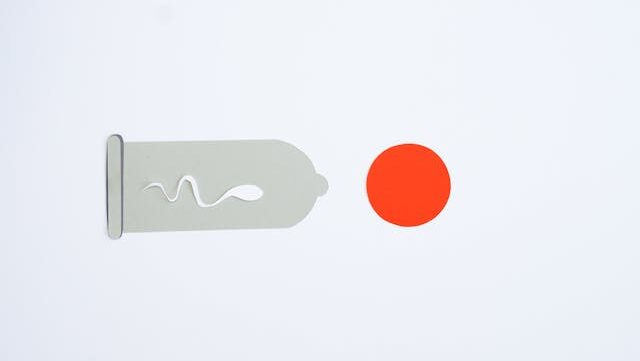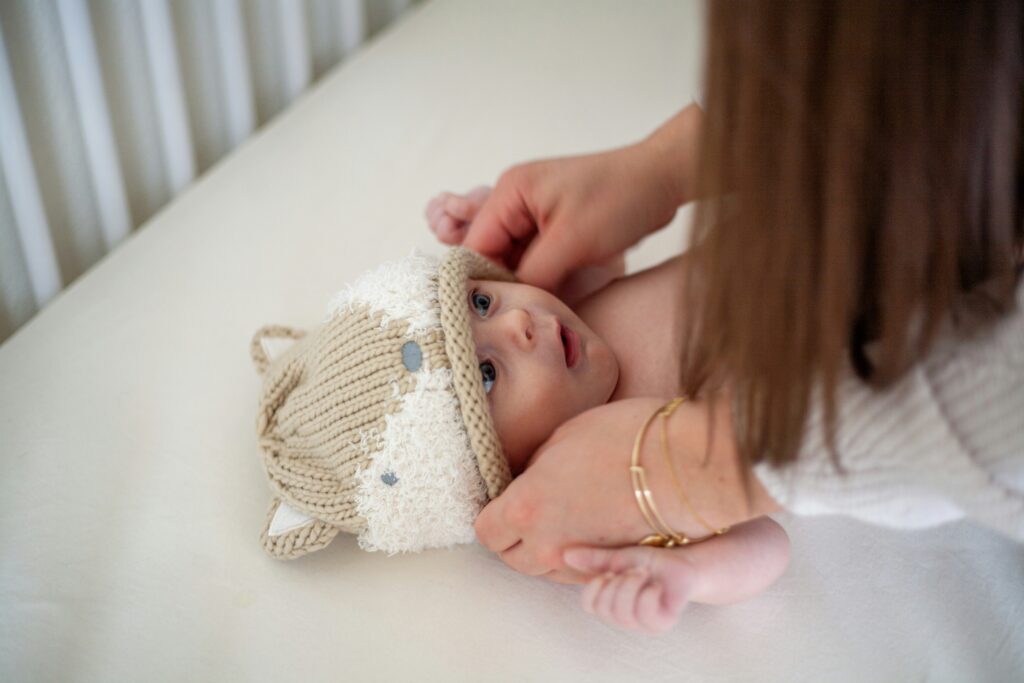Introduction
Egg donation represents one of the most profound gifts one person can give to another—the opportunity to build a family. For many individuals and couples facing fertility challenges, donor eggs offer a path to parenthood that might otherwise be impossible. Whether you’re considering becoming an egg donor out of compassion, financial need, or a combination of both, understanding and meeting egg donation qualifications is your first crucial step.
The Egg Donation Qualifications process for egg donation may initially seem overwhelming. Fertility clinics and egg donor agencies maintain strict standards to ensure both donor and recipient safety. However, with proper preparation and knowledge, meeting these requirements can be much more straightforward than you might expect.
In this comprehensive guide, we’ll walk through everything you need to know about egg donation qualifications—from basic eligibility criteria to specific medical requirements, lifestyle considerations, and practical steps to improve your chances of acceptance. We’ll also share real-world examples and expert advice to help you navigate the process with confidence.
Understanding Egg Donation Requirements
Before diving into preparation strategies, it’s essential to understand what egg donation programs typically look for in potential donors. These requirements exist to protect all parties involved and to maximize the chance of successful outcomes.
The Basics of Eligibility
Age limits: typically 21-31 years old
Most egg donation programs restrict eligibility to women between 21 and 31 years of age. This age range balances optimal fertility with emotional maturity. According to research published in the Journal of Assisted Reproduction and Genetics, egg quality and quantity naturally begin declining after age 30, making younger donors statistically more likely to produce viable eggs.
Health status: general good health
Donors must be in good overall health with no significant medical conditions. This requirement ensures the donor can safely undergo the donation process and helps maximize the quality of donated eggs.
Educational background: high school diploma or GED
While this requirement may seem unrelated to physical egg quality, it serves several purposes. First, it demonstrates the donor’s ability to understand and provide informed consent for the complex medical procedures involved. Second, many intended parents review educational background as part of their donor selection process.
Medical Requirements
Medical history clean from genetic disorders
Fertility clinics carefully screen potential donors for hereditary conditions that could be passed to offspring. According to the American Society for Reproductive Medicine, genetic screening typically includes tests for cystic fibrosis, spinal muscular atrophy, and other commonly inherited disorders.
BMI within healthy range (usually 18-30)
Body Mass Index (BMI) restrictions exist because weight extremes can affect hormonal balance and egg quality. A BMI between 18 and 30 is typically required, though exact ranges may vary between clinics. Research from the National Institutes of Health has shown that BMI outside normal ranges can impact ovarian stimulation response.
No ongoing health issues that affect fertility
Conditions like endometriosis, polycystic ovary syndrome (PCOS), or certain sexually transmitted infections may disqualify potential donors as they can impact egg quality or quantity. A thorough gynecological examination helps identify these issues during screening.
Legal and Lifestyle Factors
No criminal record
Background checks are standard in the donor screening process. These checks help ensure the safety and integrity of the donation program. Minor infractions may not disqualify you, but serious criminal history typically will.
Commitment to the donation process
Egg donation requires a significant time commitment—typically 3-4 months from initial screening to egg retrieval. During this time, donors must attend multiple appointments, administer self-injections, and comply with medication protocols. Reliability and commitment are essential qualities programs look for.
Stable lifestyle with support system
The psychological aspects of egg donation shouldn’t be underestimated. Having a stable living situation and emotional support system helps donors navigate the process successfully. Many clinics require psychological evaluation to ensure donors understand the emotional implications of their decision.
Preparing Your Body and Mind
Meeting egg donation qualifications isn’t just about passing tests—it’s about optimizing your physical and mental health to ensure the best possible outcome for everyone involved.
Health and Lifestyle Changes
Maintain a balanced diet
Nutrition plays a crucial role in reproductive health. Focus on whole foods rich in antioxidants, healthy fats, and proteins. The Centers for Disease Control and Prevention recommends a diet with plenty of fruits, vegetables, whole grains, and lean proteins to support overall health, which directly impacts egg quality.
Regular exercise habits
Moderate exercise promotes hormonal balance and helps maintain a healthy weight. Aim for 150 minutes of moderate activity weekly, as recommended by health authorities. However, avoid extreme exercise regimens, as these can sometimes disrupt normal hormone production.
Enough sleep and stress management
Sleep deprivation and chronic stress can affect hormonal balance and reproductive health. Prioritize 7-9 hours of quality sleep nightly and incorporate stress-reduction techniques like meditation, yoga, or simple breathing exercises into your routine.
Medical Tests and Screenings
Blood tests for infectious diseases
Standard screening includes tests for HIV, hepatitis B and C, and other infectious diseases. According to the Food and Drug Administration guidelines for tissue donation, these tests help ensure recipient safety.
Uterine exam and ultrasound
Transvaginal ultrasounds evaluate your ovarian reserve (egg count) and check for any abnormalities in your reproductive organs. This screening helps predict how you might respond to fertility medications.
Genetic testing as needed
Depending on your ethnic background and family history, additional genetic testing may be recommended to screen for carrier status of specific inherited conditions.
Building a Support System
Family or friends for emotional support
The hormone medications used during the donation process can cause mood swings and emotional vulnerability. Having trusted friends or family members who understand what you’re going through can make a significant difference.
Finding a trusted doctor or counselor
Establish a relationship with healthcare providers who can answer your questions and address concerns throughout the process. Many donors find it helpful to work with a mental health professional who specializes in fertility issues.
Joining support groups for donors
Online and in-person communities for egg donors can provide valuable insights and emotional support from others who have been through the process. These connections can be particularly helpful for first-time donors.
Steps to Improve Your Eligibility Chances
Even if you don’t currently meet all egg donation qualifications, many factors can be addressed to improve your chances of acceptance.
Consult with Experts
Talk to fertility clinics early
Don’t wait until you’re ready to apply before learning about specific clinic requirements. Many fertility specialists offer consultations where you can ask questions and get personalized advice about your eligibility.
Ask about health and legal questions
Being proactive about understanding the medical and legal aspects of egg donation demonstrates your commitment and helps you prepare appropriately. The American Society for Reproductive Medicine provides comprehensive resources about the legal and ethical considerations of egg donation.
Understand the donation process
Familiarize yourself with what egg donation entails—from initial screening through retrieval. Knowledge reduces anxiety and helps you make informed decisions about participation.
Address Medical Issues
Treat any infections or chronic conditions
Work with your healthcare provider to resolve any existing health issues before applying. Even conditions that don’t directly affect fertility can sometimes impact your eligibility.
Achieve a healthy weight
If your BMI falls outside the required range, focus on healthy, sustainable weight management strategies. Even modest changes can make a difference in qualifying for donation programs.
Follow doctor recommendations
If your initial screening identifies concerns, follow through with any recommended treatments or lifestyle modifications. Demonstrating this kind of responsibility improves your chances with future applications.
Be Honest and Transparent
Disclose full medical history
Withholding information can jeopardize not only your application but potentially the health of recipients. Complete honesty about your medical history, regardless of how insignificant it may seem, is essential.
Follow screening instructions carefully
Adhere precisely to all preparation instructions for tests and appointments. This attention to detail demonstrates your reliability as a potential donor.
Keep good records of health updates
Maintain organized documentation of your medical history, including any treatments or lifestyle changes you’ve implemented to improve your eligibility.
Examples and Case Studies
Real-world examples can provide valuable insights into the Egg Donation Qualifications process and help you understand what to expect.
Real Donor Successes
Sarah’s story: from rejection to acceptance
Sarah, a 28-year-old teacher, was initially rejected due to an elevated BMI of 32. Rather than giving up, she worked with a nutritionist for six months, achieving a BMI of 29. Her second application was successful, and she has since completed two donation cycles, helping two families achieve pregnancy.
How lifestyle changes helped Emily qualify
Emily’s initial screening revealed borderline anemia, which could have affected her response to stimulation medications. By incorporating iron-rich foods and supplements into her diet for three months, she was able to correct this issue and successfully qualify as a donor.
Impact of medical screenings on success rates
According to a study published in Fertility and Sterility, comprehensive medical screening of egg donors has been shown to increase successful pregnancy rates by up to 25% by identifying and addressing potential issues before the donation cycle begins.
Common Challenges and Solutions for Egg Donation Qualifications
Dealing with BMI concerns
Many potential donors struggle with meeting BMI requirements. Working with a registered dietitian who specializes in reproductive health can help develop a sustainable plan to achieve the necessary range without extreme measures.
Managing anxiety during testing
The testing process can be stressful. Techniques like deep breathing, progressive muscle relaxation, and positive visualization can help manage anxiety during blood draws, ultrasounds, and other examinations.
Navigating legal paperwork
The legal aspects of egg donation can be complex. Many donors find it helpful to work with an attorney who specializes in reproductive law to ensure they fully understand their rights and responsibilities.
Expert Insights and Quotes
Quotes from fertility specialists
“The egg donation qualifications process isn’t about finding perfect people—it’s about identifying donors who can safely participate while providing the best chance of success for recipients,” explains Dr. Jennifer Merritt, reproductive endocrinologist at Pacific Fertility Center.
Advice from experienced egg donors
“The most important thing is to be completely honest during screening. What might disqualify you at one clinic might be acceptable at another,” shares Melissa, a three-time egg donor from Colorado.
Tips from legal experts on compliance
“Understanding the legal framework of egg donation before you begin helps ensure your rights are protected throughout the process,” advises Catherine Williams, J.D., a reproductive law specialist.
Actionable Takeaways
As you consider passing Egg Donation Qualifications, keep these key points in mind:
- Start health improvements early—at least 3-6 months before applying as a donor
- Be completely honest during every stage of screening
- Stay informed about your legal rights and responsibilities as a donor
- Prepare emotionally for the commitment required
- Build a strong support system before beginning the process
Conclusion
Meeting egg donation qualifications may require effort and preparation, but the process is entirely achievable for many potential donors. By understanding the requirements, proactively addressing any health concerns, and approaching the process with honesty and commitment, you can significantly improve your chances of qualification.
Remember that egg donation programs maintain strict standards to protect both donors and recipients. These qualifications aren’t arbitrary hurdles but essential safeguards in a process that has profound implications for all involved.
Whether you’re motivated by compassion, compensation, or both, your willingness to consider egg donation represents a remarkable gift. For those who qualify and complete the process, the knowledge that you’ve helped create a family can be an immensely rewarding experience.
Frequently Asked Questions
How much time will I need to take off work or school?
Most donors need to attend 8-10 appointments over a 3-4 week period, with most visits lasting 30-60 minutes. The egg retrieval procedure itself typically requires taking 1-2 days off for the procedure and recovery. Many clinics offer flexible scheduling to accommodate work or school commitments.
Can I donate eggs if I'm currently using hormonal birth control?
Yes, you can be on hormonal birth control when applying, but you’ll need to discontinue use before beginning the donation cycle. Your fertility specialist will provide guidance on the appropriate timing for stopping contraception before starting the stimulation medications.
Does egg donation hurt?
The egg retrieval procedure is performed under sedation, so you won’t feel pain during the actual retrieval. Some donors experience cramping, bloating, or discomfort for a few days afterward, similar to menstrual cramps. Pain medication and rest typically resolve these symptoms quickly.
If I'm disqualified by one clinic, should I try applying to others?
It depends on the reason for disqualification. If it’s due to a temporary factor (like weight or a treatable condition), addressing that issue before reapplying is advisable. If the disqualification is for a permanent reason (like genetic disorders), that will likely apply at all clinics. Different clinics may have slightly different criteria about Egg Donation Qualifications, so consulting with another program could be worthwhile if your disqualification was borderline.







